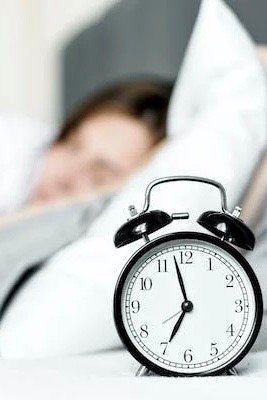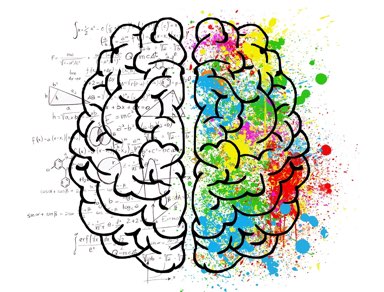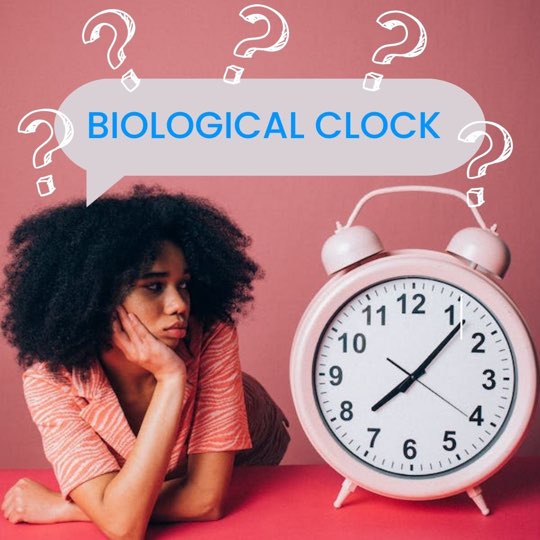Have you ever heard about jet lag ? You might have experienced it as well. Why it incapacitates you to function properly for few days! This happens because your biological clock/ body clock gets puzzled between 2 different time zones. But why do we have an internal body clock at the first place? What is the significance of biological clock?
Introduction
Our body can recognise and record time. For instance it can comprehend, whether it is summer or winter, day or night, or even which part of the day it is. This internal system is called body clock or biological clock.
Though it is an internal clock, it draws clues from environmental factors like light, temperature, humidity, noise to align itself. These factors are better known as “zeitgebers”.
Keep reading this blog to know ‘What is the significance of biological clock in human health ?’ & ‘What diseases a person might endure, if this clock is disturbed?’.
What is role of biological clock in maintaining sleep awake cycle ?
In human body, a hormone named melatonin secretes at night. This puts us to sleep. Also there is another hormone, cortisol, which is produced during day time. Cortisol keeps us alert. The equilibrium between these two hormones maintains sleep awake cycle.
Sleep-awake cycle is part of 24 hour biological rhythm of body, otherwise described as circadian rhythm.
When biological clock starts functioning in body ?
When a newborn comes to this earth, its biological clock is not yet set. It has an immature circadian rhythm. So it is difficult for the baby to differentiate day and night. That is why parents notice that a newborn baby sleeps at odd hours.
Some babies sleep during most part of day and stay alert through night. This happens because melatonin and cortisol hormones are not yet fully established. It takes almost 4 months to set these right.
Melatonin secretion starts increasing over first few weeks of life. However it takes around 4 months of age to function well. Similarly cortisol also comes to effect between 2-9 months of age.
To prepare your baby for a healthy sleep routine, avoid artificial bright light around him/her in night hours. This configures body clock faster.
What is the significance of biological clock in health and disease ?
Our grand parents hardly thought consciously about body clock. They did not need to. As soon as sun set, they used to prime themselves for sleep. This is not applicable for the modern world, where artificial bright lights, cell phones, laptop and television are hardwired into our lives. Hence, now a days getting along with internal clock is a far fetched dream.
But we can not ignore the significance of biological clock in keeping our physical and mental health in shape. Below are the reasons why body clock is so important for us.
1.Optimise energy expenditure

What would happen to our body systems if they continue to work at their full pace throughout 24 hours? Pretty soon they will tire out.
Sleep-awake cycle allows us to take proper rest at night. So that we are at best of our productivity during day hours.
2.Control body temperature
Our body temperature is not same over 24 hour period. It may vary by, up to 0.5 degree Celsius or 0.9 degree Fahrenheit.
The highest temperature recorded is around 6 pm and lowest is roughly at 4 am. This circadian temperature rhythm is important to our body functions.
3.Regulate hormones
We have many hormones operating inside us. Each hormone level in body is not fixed all through 24 hour. Hormones like thyroid hormone, male and female reproductive hormones, cortisol etc. show diurnal fluctuation ( day-night variation ) pattern unique to each.
One such example is prolactin hormone. This promotes milk secretion in lactating mothers. Prolactin level peaks during night. That is why paediatricians often instruct mothers not to miss night time breast feeding for their babies.
4.Bodily metabolism
Many studies have shown that our metabolism oscillates over 24 hours. Take for example glucose metabolism and insulin resistance.
Insulin resistance is more during night ( Insulin is a hormone responsible for glucose metabolism ). So when we take food at night, body can not metabolise glucose in it, efficiently. In layman’s terms, body can not tolerate glucose at night as it can do during day time.
Likewise lipid metabolism in our body is also influenced by circadian rhythm.
5.Focus and efficiency
Our body and mind requires rest to function normally. Rest or sleep keeps our focus, and logical thinking intact. It enables us to be more productive and efficient.
6.Memory building
Science says that sleep cycle facilitates neuronal development and synapse formation. So, if we read something at night before sleep and recall in the morning we remember it better. In other words sleep strengthens “memory consolidation”.
7.Ageing clock
Biological clock is not a single clock. We have central clock/ master clock in brain known as SCN ( suprachiasmatic nucleus ) and many peripheral clocks in different organs. These function in close cooperation.
Our internal clock includes another clock called ageing clock. Because of which each cell in our body is born with a predetermined time period of survival. Ageing clock makes sure no one is immortal.
8.Function of heart and heart rate
Like every other vital organs in body, heart has its own peripheral circadian clock. Functions of heart like heart rate and blood pressure are evidently higher during daytime and lower during night. Again heart muscle contractility also vary over 24 hours.
9.Digestive function
Gut functions are pretty closely related to body clock. There is 24 hours variation in digestion, enzyme secretion, gut movement and so on.
Our gut is designed to function maximum at day and relax during night. If we consume food at night, it disturbs biological clock. Which again upsets gut function. And this vicious cycle continues. Hence take care of your meal time as well as biological clock for a healthy gut.
10.Immunity
There are immune cells in our body that fend off foreign disease causing agents. These cells follow biological rhythm. Hence if biological clock is affected, this impacts immunity in negative way.
11.Gut microbiota
We have gut microbes in intestine which have so many beneficial functions in our body. These protects us from a myriad of diseases. It is surprising that gut microflora activity sticks to biological rhythm too.
12.Detoxification
Liver is the primary organ which removes toxins from body. This process is most active during night when we go to sleep. In case we are awake at night, this hampers detoxification. As a result, toxins accumulate inside our body.
WHAT DISEASES ARE MORE LIKELY IF BIOLOGICAL CLOCK IS DERANGED
What happens when you do not listen to your body clock? Here are some diseases that are more likely to happens in case your biological clock is out of rhythm.
1.sleep disorder

Few examples of sleep disorders due to mal-aligned biological clock are :
Excess sleep during day
Travelling across time zones that causes sleep disturbance
Too much social night life, interfering day to day activities and sleep
sleeping too late at night
sleeping too early
2.Chronic metabolic disease
Some people identify themselves to be morning larks ( most active during day ), some happen to be night owl ( most active at night ).
Research shows that night owls are more at risk of suffering from chronic diseases like diabetes,obesity, hypertension, dys-lipidemia ( abnormal lipid metabolism) etc. These invite many other diseases.
3.Psychological and psychiatric conditions
People with unbalanced circadian rhythm suffer from disorders of mental health, like anxiety, depression,bipolar disorder, mood disorders etc.
There are areas of earth close to pole, where day and night are more than 24 hours, and sometimes last for months. These people struggle with “seasonal affective disorder”. And they are more prone for psychiatric issues.
4.Memory and learning disorder
If sleep-wake cycle is hampered, it impacts memory and learning unfavourably.
5.Heart diseases
Heart attack( myocardial infarction ) is a disease that is taking away many lives these days. There are numerous factors that lead to heart attack. Malfunction of biological clock contributes towards it.
In the same way arrhythmia ( abnormal heart rhythm ) also may aggravate due to abnormal body clock.
6.Lack of focus and efficiency
If circadian rhythm is disrupted, then capacity of a person to think logically declines. There is lack of focus and efficiency in whatever s/he does. This makes a person prone for mistakes and accidents.
7.Gut disease
Defect in gut motility and digestion are consequences of mal-alignment of circadian rhythm. Gut diseases like IBD ( inflammatory bowel disease), IBS ( Irritable bowel syndrome ), and even gut cancer are more likely in case of biological clock disturbances.
Conclusion
Our body is designed to do certain activity at certain time. There is a time to go to bed, wake up, to exercise, to read etc. Try to keep yourself in line with it when it comes to daily routine.
Make an effort to comment below your valuable suggestions. Share it with your near and dear ones if you want to let them be aware about significance of biological clock.
Caution
All the informations provided here are for educational and awareness purpose only. Kindly do not use these as alternative to medical consultation.
.




